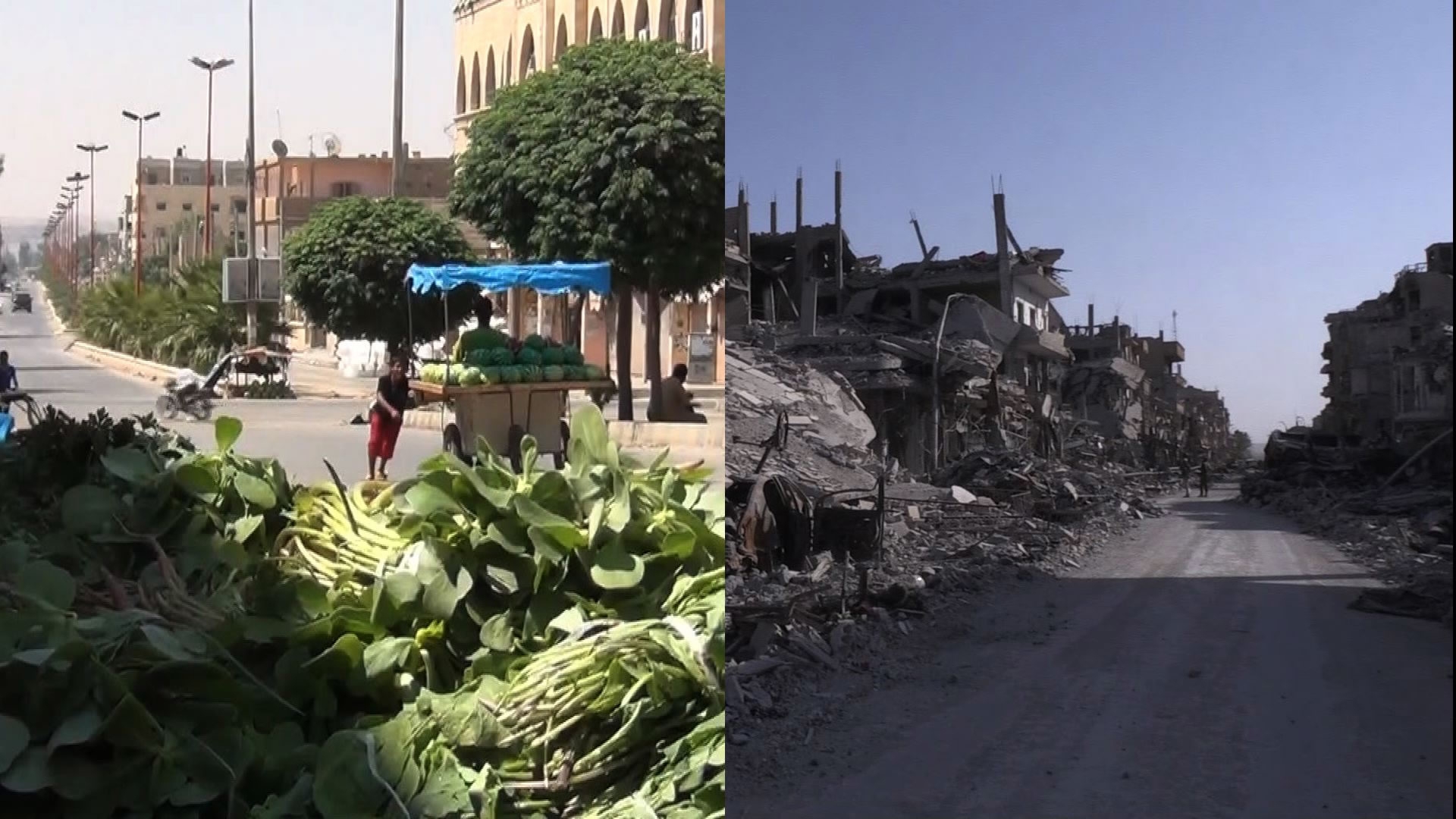
World
13:02, 24-Oct-2017
Syria's Raqqa before, during and after ISIL's 'caliphate'
Yang Xinmeng

The ISIL's former Syrian stronghold Raqqa has been recaptured, but it lies ruined, littered with explosives, and lacking electricity or running water for residents desperate to return.
Aid groups and the United Nations say clearing and rebuilding what was once the Syrian capital will be a massive, expensive effort, and it could be months before life resumes.
Four months of fierce fighting including heavy US-led coalition air strikes have collapsed multi-story buildings and left others torn apart by heavy artillery and gunfire.
The United Nations estimated in September that up to 80 percent of the city could be uninhabitable, and Raqqa's basic infrastructure is now virtually non-existent.
Running water has been out for months, and just a few water boreholes remained in use before the last phase of the battle to liberate the city.
There is no electricity supply at all, with the grid damaged by fighting and the generators that had provided two hours of power a day out of fuel.
There are also no functioning medical facilities in the city, and schools have long since closed, non-governmental organizations say.
Around 270,000 people have been displaced by the fight for Raqqa, but they will be unable to return until the city is cleared of explosives, which ISIL has regularly laid across territory under its control.
Residents have already been warned against attempting to enter the city for now, and permanent returns are not expected for the next month at least, as clean-up operations continue.
Source(s): AFP

SITEMAP
Copyright © 2018 CGTN. Beijing ICP prepared NO.16065310-3
Copyright © 2018 CGTN. Beijing ICP prepared NO.16065310-3